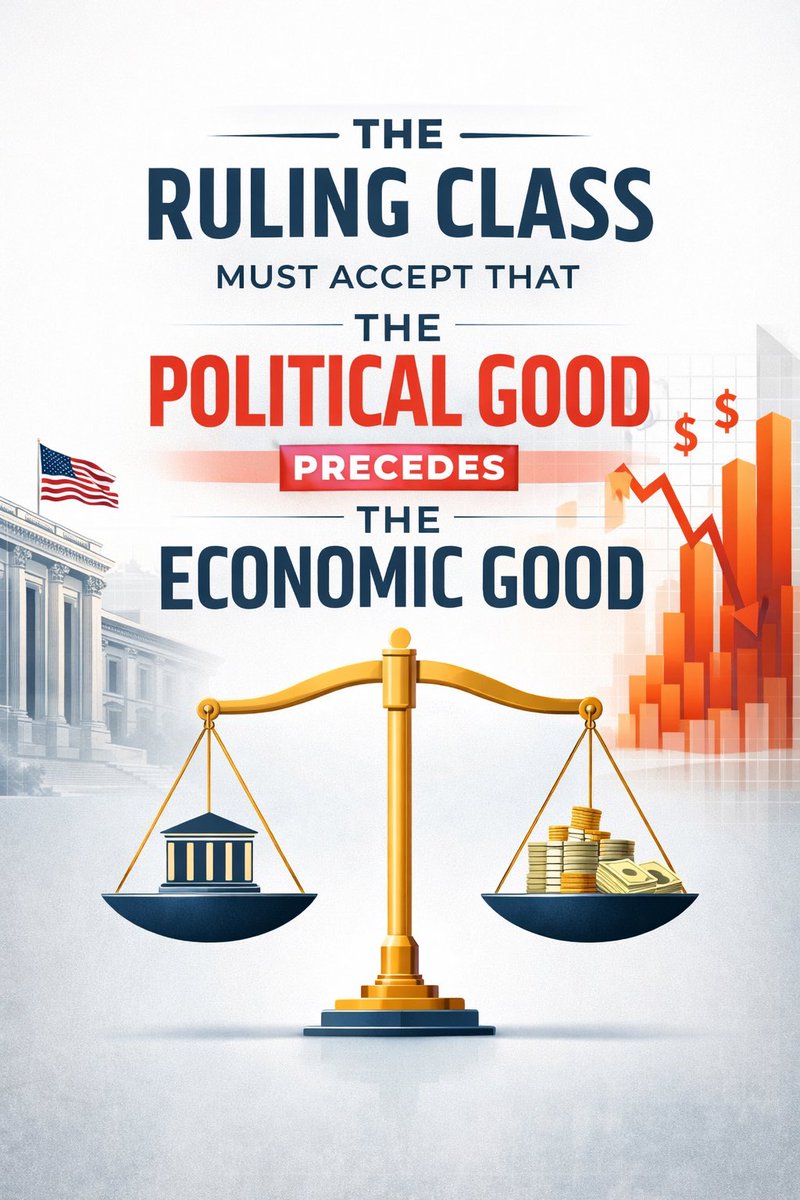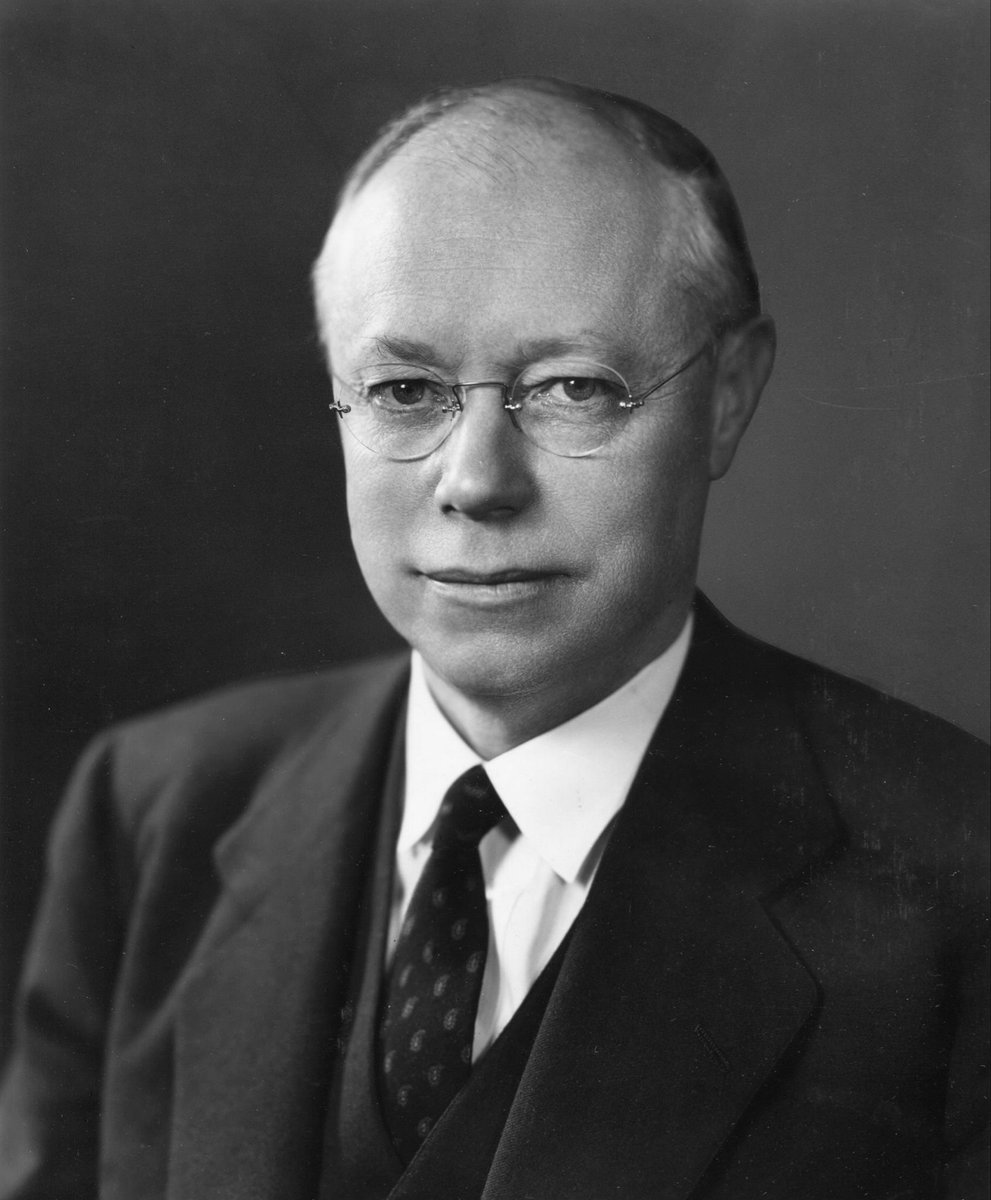
https://t.co/KAwCUXczVW Statistical Vol Arb, Economics, Political Theology, Global Risk
How to get URL link on X (Twitter) App


 In classical terms, politics aims at a just polis — a bounded community capable of self-rule. Our administrative regime instead aims at frictionless flows of labor, capital, goods, and people. Borders become inconveniences, not principles.
In classical terms, politics aims at a just polis — a bounded community capable of self-rule. Our administrative regime instead aims at frictionless flows of labor, capital, goods, and people. Borders become inconveniences, not principles.

 Executive Order 9066 didn’t say “Japanese Americans,” “prison camps,” or “asset seizure.”
Executive Order 9066 didn’t say “Japanese Americans,” “prison camps,” or “asset seizure.”
 Paul calls the law a paidagōgos; that is a pedagogue/tutor who restrains the immature until the Son comes. It belongs to the time before human maturity, when men were still children under guardians.
Paul calls the law a paidagōgos; that is a pedagogue/tutor who restrains the immature until the Son comes. It belongs to the time before human maturity, when men were still children under guardians.

 The Office of Strategic Services (OSS), founded by FDR and Donovan, was not a conservative project.
The Office of Strategic Services (OSS), founded by FDR and Donovan, was not a conservative project.

 The answer is not pedantic history. It reveals how language itself is a weapon, how elites invert meaning to consolidate power, and why local self-government is always the first casualty of empire.
The answer is not pedantic history. It reveals how language itself is a weapon, how elites invert meaning to consolidate power, and why local self-government is always the first casualty of empire.

 I was baptized as a young adult in a Southern Baptist church. I’m grateful for that season and for my Baptist brothers and sisters. But I have come to believe the paedobaptist position better reflects the Bible’s teaching.
I was baptized as a young adult in a Southern Baptist church. I’m grateful for that season and for my Baptist brothers and sisters. But I have come to believe the paedobaptist position better reflects the Bible’s teaching.
 1/ Recently declassified documents from the Office of the Director of National Intelligence raise serious concerns about the conduct of senior intelligence officials during the 2016 presidential transition. This thread outlines the timeline and evidence with a focus on transparency and accountability.
1/ Recently declassified documents from the Office of the Director of National Intelligence raise serious concerns about the conduct of senior intelligence officials during the 2016 presidential transition. This thread outlines the timeline and evidence with a focus on transparency and accountability.

 This isn’t just about Epstein. It’s about what his case reveals: a nexus of unaccountable power, intelligence cover, institutional rot, and elite impunity. The story touches every nerve the American right has been warning about for a century.
This isn’t just about Epstein. It’s about what his case reveals: a nexus of unaccountable power, intelligence cover, institutional rot, and elite impunity. The story touches every nerve the American right has been warning about for a century. 
https://twitter.com/kalezelden/status/1919080645910835366James B. Jordan argues it’s not arbitrary—but deeply symbolic, rooted in biblical numerology, temple imagery, and prophetic typology. A short thread:

 Pareto believed human behavior was ruled not by logic or morality, but by irrational forces he called “residues” — instincts like combination, persistence, or defense — dressed up afterward in rational “derivations” like ideologies or legal theories.
Pareto believed human behavior was ruled not by logic or morality, but by irrational forces he called “residues” — instincts like combination, persistence, or defense — dressed up afterward in rational “derivations” like ideologies or legal theories.
 Strauss had a complex view of Zionism. In his youth, he supported Revisionist Zionism—aligned with Jabotinsky rather than the secular socialism of Ben-Gurion.
Strauss had a complex view of Zionism. In his youth, he supported Revisionist Zionism—aligned with Jabotinsky rather than the secular socialism of Ben-Gurion.
 Di admitted that for decades, China relied on “old friends” in the U.S.—especially in Wall Street and the political elite—to quietly defend Chinese interests.
Di admitted that for decades, China relied on “old friends” in the U.S.—especially in Wall Street and the political elite—to quietly defend Chinese interests.
 2/ Gog and Magog in Ezekiel are mysterious: a coalition of nations attacks “unwalled” Israel but is destroyed by divine intervention. Jordan sees this not as far-off apocalypse, but as Esther’s story played out under Persia.
2/ Gog and Magog in Ezekiel are mysterious: a coalition of nations attacks “unwalled” Israel but is destroyed by divine intervention. Jordan sees this not as far-off apocalypse, but as Esther’s story played out under Persia.

 ἔθνη (ethne) is where we get the modern term ethnicity, but its ancient meaning is broader. It refers to nations, peoples, or cultural groups—often defined by shared customs, language, or geography rather than strict bloodlines.
ἔθνη (ethne) is where we get the modern term ethnicity, but its ancient meaning is broader. It refers to nations, peoples, or cultural groups—often defined by shared customs, language, or geography rather than strict bloodlines.